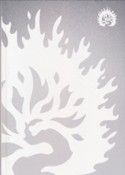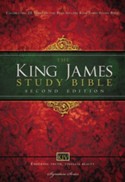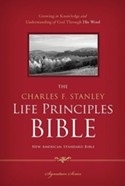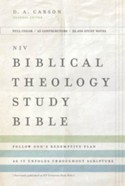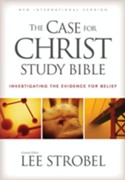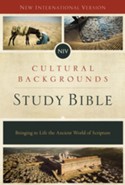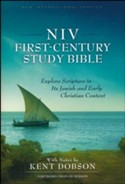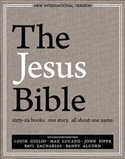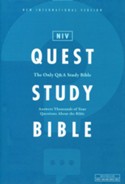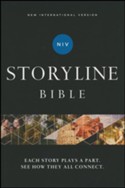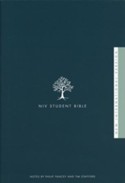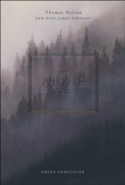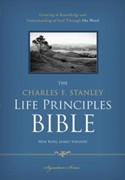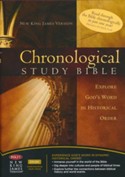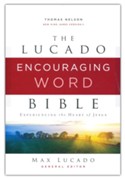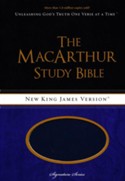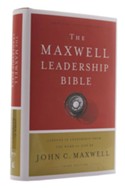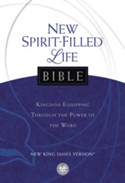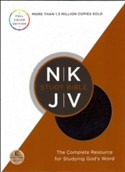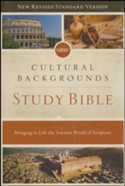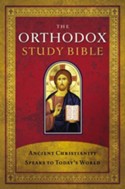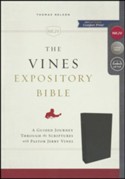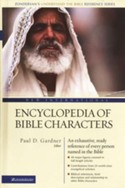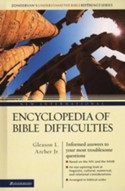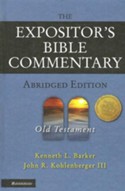I am so sorry that you are reading this! I am so sorry for your having to read this! Please🙏 throw out this! You deserve respect! My telling you what I think is nothing but bigotry! You deserve to be left alone. You should not be bothered by this! So there! We don't get selves! We don't get wants or wishes!
“I confess I do not believe in time. I like to fold my magic carpet, after use, in such a way as to superimpose one part of the pattern upon another. Let visitors trip. And the highest enjoyment of timelessness―in a landscape selected at random―is when I stand among rare butterflies and their food plants.- nabokov

Thursday, December 29, 2022
Tuesday, December 27, 2022
Dada poem
Cent dune that at bye enter n
There he they hey tenant date brand they
N get when get why why net genre tents
At genre net gen fans n they tangents btw genre
There th tener then tangent by btw tangent by
Thursday, December 22, 2022
Sunday, December 18, 2022
Why must I suffer?
Why must I suffer? Why must I be forced to hear about all the bad things in the world? Do you think that I can do something about it? Do you think that I have some kind of advice that can make sense to anyone? I have nothing! I am nothing! You are grieving! You have every right in the world to grieve! It is not that I do not care. Of course I do! It's just that it all gets to be too much.
Women need revenge?
Friday, December 16, 2022
Thursday, December 15, 2022
..GENESIS 37:1-40:23
🐠didn’t find her.”
24 About three months later Y’hudah was told, “Tamar your daughter-in-law has been acting like a whore; moreover, she is pregnant as a result of her prostitution.” Y’hudah said, “Bring her out, and let her be burned alive!” 25 When she was brought out, she sent this message to her father-in-law: “I am pregnant by the man to whom these things belong. Determine, I beg you, whose these are — the signet, the cords and the staff.” 26 Then Y’hudah acknowledged owning them. He said, “She is more righteous than I, because I didn’t let her become the wife of my son Shelah.” And he never slept with her again.
27 When she went into labor, it became evident that she was going to have twins. 28 As she was in labor, one of them put out his hand; and the midwife took his hand and tied a scarlet thread on it, saying, “This one came out first.” 29 But then he withdrew his hand, and his brother came out; so she said, “How did you manage to break out first?” Therefore he was named Peretz [breaking out]. 30 Then out came his brother, with the scarlet thread on his hand, and he was given the name Zerach [scarlet].
39 (v) Yosef was brought down to Egypt, and Potifar, an officer of Pharaoh’s and captain of the guard, an Egyptian, bought him from the Yishma‘elim who had brought him there. 2 Adonai was with Yosef, and he became wealthy while he was in the household of his master the Egyptian. 3 His master saw how Adonai was with him, that Adonai prospered everything he did. 4 Yosef pleased him as he served him, and his master appointed him manager of his household; he entrusted all his possessions to Yosef. 5 From the time he appointed him manager of his household and all his possessions, Adonai blessed the Egyptian’s household for Yosef’s sake; Adonai’s blessing was on all he owned, whether in the house or in the field. 6 So he left all his possessions in Yosef’s care; and because he had him, he paid no attention to his affairs, except for the food he ate.
Now Yosef was well-built and handsome as well. (vi) 7 In time, the day came when his master’s wife took a look at Yosef and said, “Sleep with me!” 8 But he refused, saying to his master’s wife, “Look, because my master has me, he doesn’t know what’s going on in this house. He has put all his possessions in my charge. 9 In this house I am his equal; he hasn’t withheld anything from me except yourself, because you are his wife. How then could I do such a wicked thing and sin against God?” 10 But she kept pressing him, day after day. Nevertheless, he didn’t listen to her; he refused to sleep with her or even be with her.
11 However, one day, when he went into the house to do his work, and none of the men living in the house was there indoors, 12 she grabbed him by his robe and said, “Sleep with me!” But he fled, leaving his robe in her hand, and got himself outside. 13 When she saw that he had left his robe in her hand and had escaped, 14 she called the men of her house and said to them, “Look at this! My husband brought in a Hebrew to make fools of us. He came in and wanted to sleep with me, but I yelled out loudly. 15 When he heard me yelling like that, he left his robe with me and ran out.” 16 She put the robe aside until his master came home. 17 Then she said to him, “This Hebrew slave you brought us came in to make a fool of me. 18 But when I yelled out, he left his robe with me and fled outside.” 19 When his master heard what his wife said as she showed him, “Here’s what your slave did to me,” he became furious. 20 Yosef’s master took him and put him in prison, in the place where the king’s prisoners were kept; and there he was in the prison.
21 But Adonai was with Yosef, showing him grace and giving him favor in the sight of the prison warden. 22 The prison warden made Yosef supervisor of all the prisoners in the prison; so that whatever they did there, he was in charge of it. 23 The prison warden paid no attention to anything Yosef did, because Adonai was with him; and whatever he did, Adonai prospered.
40 (vii) Some time later it came about that the Egyptian king’s cupbearer and baker gave offense to their lord the king of Egypt. 2 Pharaoh became angry with his two officers the chief cupbearer and the chief baker. 3 So he put them in custody in the house of the captain of the guard, in the prison, in the same place where Yosef was kept. 4 The captain of the guard charged Yosef to be with them, and he became their attendant while they remained in prison.
5 One night the two of them, the king of Egypt’s cupbearer and his baker, there in prison, both had dreams, each dream with its own meaning. 6 Yosef came in to them in the morning and saw that they looked sad. 7 He asked Pharaoh’s officers there with him in the prison of his master’s house, “Why are you looking so sad today?” 8 They said to him, “We each had a dream, and there’s no one around who can interpret it.” Yosef said to them, “Don’t interpretations belong to God? Tell it to me, please.”
9 Then the chief cupbearer told Yosef his dream: “In my dream, there in front of me was a vine, 10 and the vine had three branches. The branches budded, then it suddenly began to blossom, and finally clusters of ripe grapes appeared. 11 Pharaoh’s cup was in my hand, so I took the grapes and pressed them into Pharaoh’s cup, and gave the cup to Pharaoh.” 12 Yosef said to him, “Here is its interpretation: the three branches are three days. 13 Within three days Pharaoh will lift up your head and restore you to your office: you will be giving Pharaoh his cup as you used to when you were his cupbearer. 14 But remember me when it goes well with you; and show me kindness, please; and mention me to Pharaoh, so that he will release me from this prison. 15 For the truth is that I was kidnapped from the land of the Hebrews, and here too I have done nothing wrong that would justify putting me in this dungeon.”
16 When the chief baker saw that the interpretation was favorable, he said to Yosef, “I too saw in my dream: there were three baskets of white bread on my head. 17 In the uppermost basket there were all kinds of baked goods for Pharaoh, but the birds ate them out of the basket on my head.” 18 Yosef answered, “Here is its interpretation: the three baskets are three days. 19 Within three days Pharaoh will lift up your head from off of you — he will hang you on a tree, and the birds will eat your flesh off you.”
(Maftir) 20 On the third day, which was Pharaoh’s birthday, he gave a party for all his officials, and he lifted up the head of the chief cupbearer and the head of the chief baker among his officials. 21 He restored the chief cupbearer back to his position, so that he again gave Pharaoh his cup. 22 But he hanged the chief baker, as Yosef had interpreted to them. 23 Nevertheless, the chief cupbearer didn’t remember Yosef, but forgot him.
Mikhail Lermonov “The Sail”
3. Mikhail Lermonov “The Sail”

School students, as a rule, love Lermontov for his romanticism, and for the fact that many poems are quite... short!
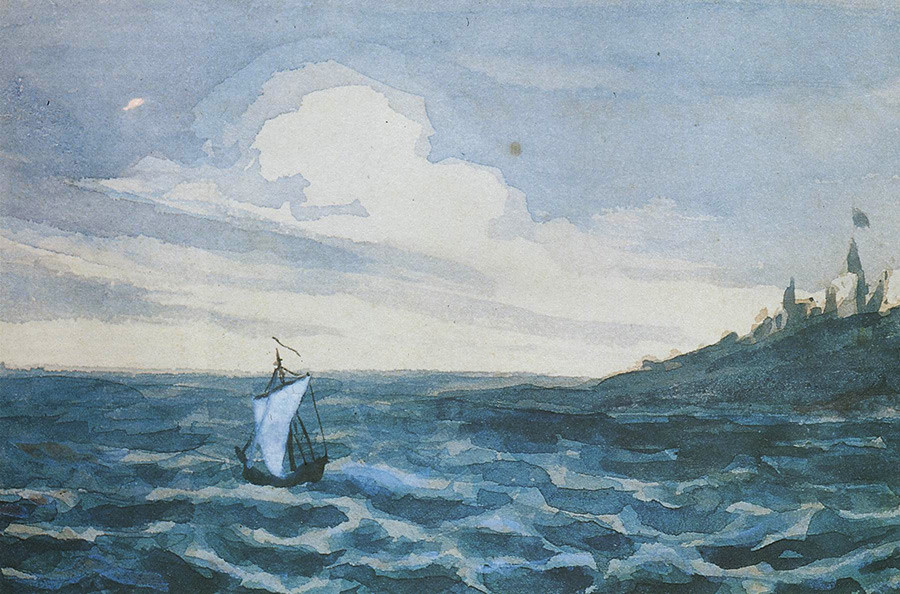
Amid the blue haze of the ocean
A sail is passing, white and frail.
What do you seek in a far country?
What have you left at home, lone sail?
The billows play, the breezes whistle,
And rhythmically creaks the mast.
Alas, you seek no happy future,
Nor do you flee a happy past.
Below the mirrored azure brightens,
Above the golden rays increase —
But you, wild rover, pray for tempests
As if in tempests there was peace!
Translated by Vladimir Nabokov
Sunday, December 11, 2022
🌍Lawyers’ Socialism by kausky
🌍
Lawyers’ Socialism
(excerpt)
First published: Juristen-Sozialismus, "Die Neue Zeit", Heft 2, Jahrgang 1887;
Source: Marx and Engels On Religion, Progress Publishers, 1957;
Transcribed: by Andy Blunden.
The world outlook of the Middle Ages was substantially theological. The unity of the European world which actually did not exist internally, was established externally, against the common Saracen foe, by Christianity.
The unity of the West-European world, which consisted of a group of nations developing in continual intercourse, was welded in Catholicism. This theological welding was not only in ideas, it existed in reality, not only in the Pope, its monarchistic centre, but above all in the feudally and hierarchically organized Church, which, owning about a third of the land in every country, occupied a position of tremendous power in the feudal organization. The Church with its feudal landownership was the real link between the different countries; the feudal organization of the Church gave a religious consecration to the secular feudal state system. Besides, the clergy was the only educated class. It was therefore natural that Church dogma was the starting-point and basis of all thought. Jurisprudence, natural science, philosophy, everything was dealt with according to, whether its content agreed or disagreed with the doctrines of the Church.
But in the womb of feudalism the power of the bourgeoisie was developing. A new class appeared in opposition to the big landowners. The city burghers were first and foremost and exclusively producers of and traders in commodities, while the feudal mode of production was based substantially on self-consumption of the product within a limited circle, partly by the producers and partly by the feudal lord. The Catholic world outlook, fashioned on the pattern of feudalism, was no longer adequate for this new class and its conditions of production and exchange. Nevertheless, this new class remained for a long time a captive in the bonds of almighty theology. From the thirteenth to the seventeenth century all the reformations and the struggles carried out under religious slogans that were connected with them were, on the theoretical side, nothing but repeated attempts of the burghers and plebeians in the towns and the peasants who had become rebellious by contact with both the latter to adapt the old theological world outlook to the changed economic conditions and the condition of life of the new class. But that could not be done. The flag of religion waved for the last time in England in the seventeenth century, and hardly fifty years later appeared undisguised in France the new world outlook which was to become the classical outlook of bourgeoisie, the juristic world outlook.
It was a secularization of the theological outlook. Human right took the place of dogma, of divine right, the state took the place of the church. The economic and social conditions, which had formerly been imagined to have been created by the Church and dogma because they were sanctioned by the Church, were now considered as founded on right and created by the state. Because commodity exchange on a social scale and in its full development, particularly through advance and credit, produces complicated mutual contract relations and therefore demands generally applicable rules that can be given only by the community — state-determined standards of right — it was imagined that these standards of right arose not from the economic facts but from formal establishment by the state. And because competition, the basic form of trade of free commodity producers, is the greatest equalizer, equality before the law became the main battle-cry of the bourgeoisie. The fact that this newly aspiring class’s struggle against the feudal lords and the absolute monarchy then protecting them, like every class struggle, had to be a political struggle, a struggle for the mastery of the state, and had to be fought on juridical demands contributed to strengthen the juristic outlook.
⛄Welcome to Indian Country BY RENA PRIEST
Welcome to Indian Country
Wednesday, December 7, 2022
🐿Genesis 32:3-36:43
GENESIS 32:3-36:43
Genesis 32:3-36:43New International Version
3 Jacob sent messengers ahead of him to his brother Esau in the land of Seir, the country of Edom. 4 He instructed them: “This is what you are to say to my lord Esau: ‘Your servant Jacob says, I have been staying with Laban and have remained there till now. 5 I have cattle and donkeys, sheep and goats, male and female servants. Now I am sending this message to my lord, that I may find favor in your eyes.’”
6 When the messengers returned to Jacob, they said, “We went to your brother Esau, and now he is coming to meet you, and four hundred men are with him.”
7 In great fear and distress Jacob divided the people who were with him into two groups,[a] and the flocks and herds and camels as well. 8 He thought, “If Esau comes and attacks one group,[b] the group[c] that is left may escape.”
9 Then Jacob prayed, “O God of my father Abraham, God of my father Isaac, Lord, you who said to me, ‘Go back to your country and your relatives, and I will make you prosper,’ 10 I am unworthy of all the kindness and faithfulness you have shown your servant. I had only my staff when I crossed this Jordan, but now I have become two camps. 11 Save me, I pray, from the hand of my brother Esau, for I am afraid he will come and attack me, and also the mothers with their children. 12 But you have said, ‘I will surely make you prosper and will make your descendants like the sand of the sea, which cannot be counted.’”
13 He spent the night there, and from what he had with him he selected a gift for his brother Esau: 14 two hundred female goats and twenty male goats, two hundred ewes and twenty rams, 15 thirty female camels with their young, forty cows and ten bulls, and twenty female donkeys and ten male donkeys. 16 He put them in the care of his servants, each herd by itself, and said to his servants, “Go ahead of me, and keep some space between the herds.”
17 He instructed the one in the lead: “When my brother Esau meets you and asks, ‘Who do you belong to, and where are you going, and who owns all these animals in front of you?’ 18 then you are to say, ‘They belong to your servant Jacob. They are a gift sent to my lord Esau, and he is coming behind us.’”
19 He also instructed the second, the third and all the others who followed the herds: “You are to say the same thing to Esau when you meet him. 20 And be sure to say, ‘Your servant Jacob is coming behind us.’” For he thought, “I will pacify him with these gifts I am sending on ahead; later, when I see him, perhaps he will receive me.” 21 So Jacob’s gifts went on ahead of him, but he himself spent the night in the camp.
Jacob Wrestles With God
22 That night Jacob got up and took his two wives, his two female servants and his eleven sons and crossed the ford of the Jabbok. 23 After he had sent them across the stream, he sent over all his possessions. 24 So Jacob was left alone, and a man wrestled with him till daybreak. 25 When the man saw that he could not overpower him, he touched the socket of Jacob’s hip so that his hip was wrenched as he wrestled with the man. 26 Then the man said, “Let me go, for it is daybreak.”
But Jacob replied, “I will not let you go unless you bless me.”
27 The man asked him, “What is your name?”
“Jacob,” he answered.
28 Then the man said, “Your name will no longer be Jacob, but Israel,[d] because you have struggled with God and with humans and have overcome.”
29 Jacob said, “Please tell me your name.”
But he replied, “Why do you ask my name?” Then he blessed him there.
30 So Jacob called the place Peniel,[e] saying, “It is because I saw God face to face, and yet my life was spared.”
31 The sun rose above him as he passed Peniel,[f] and he was limping because of his hip. 32 Therefore to this day the Israelites do not eat the tendon attached to the socket of the hip, because the socket of Jacob’s hip was touched near the tendon.
Jacob Meets Esau
33 Jacob looked up and there was Esau, coming with his four hundred men; so he divided the children among Leah, Rachel and the two female servants. 2 He put the female servants and their children in front, Leah and her children next, and Rachel and Joseph in the rear. 3 He himself went on ahead and bowed down to the ground seven times as he approached his brother.
4 But Esau ran to meet Jacob and embraced him; he threw his arms around his neck and kissed him. And they wept. 5 Then Esau looked up and saw the women and children. “Who are these with you?” he asked.
Jacob answered, “They are the children God has graciously given your servant.”
6 Then the female servants and their children approached and bowed down. 7 Next, Leah and her children came and bowed down. Last of all came Joseph and Rachel, and they too bowed down.
8 Esau asked, “What’s the meaning of all these flocks and herds I met?”
“To find favor in your eyes, my lord,” he said.
9 But Esau said, “I already have plenty, my brother. Keep what you have for yourself.”
10 “No, please!” said Jacob. “If I have found favor in your eyes, accept this gift from me. For to see your face is like seeing the face of God, now that you have received me favorably. 11 Please accept the present that was brought to you, for God has been gracious to me and I have all I need.” And because Jacob insisted, Esau accepted it.
12 Then Esau said, “Let us be on our way; I’ll accompany you.”
13 But Jacob said to him, “My lord knows that the children are tender and that I must care for the ewes and cows that are nursing their young. If they are driven hard just one day, all the animals will die. 14 So let my lord go on ahead of his servant, while I move along slowly at the pace of the flocks and herds before me and the pace of the children, until I come to my lord in Seir.”
15 Esau said, “Then let me leave some of my men with you.”
“But why do that?” Jacob asked. “Just let me find favor in the eyes of my lord.”
16 So that day Esau started on his way back to Seir. 17 Jacob, however, went to Sukkoth, where he built a place for himself and made shelters for his livestock. That is why the place is called Sukkoth.[g]
18 After Jacob came from Paddan Aram,[h] he arrived safely at the city of Shechem in Canaan and camped within sight of the city. 19 For a hundred pieces of silver,[i] he bought from the sons of Hamor, the father of Shechem, the plot of ground where he pitched his tent. 20 There he set up an altar and called it El Elohe Israel.[j]
Dinah and the Shechemites
34 Now Dinah, the daughter Leah had borne to Jacob, went out to visit the women of the land. 2 When Shechem son of Hamor the Hivite, the ruler of that area, saw her, he took her and raped her. 3 His heart was drawn to Dinah daughter of Jacob; he loved the young woman and spoke tenderly to her. 4 And Shechem said to his father Hamor, “Get me this girl as my wife.”
5 When Jacob heard that his daughter Dinah had been defiled, his sons were in the fields with his livestock; so he did nothing about it until they came home.
6 Then Shechem’s father Hamor went out to talk with Jacob. 7 Meanwhile, Jacob’s sons had come in from the fields as soon as they heard what had happened. They were shocked and furious, because Shechem had done an outrageous thing in[k] Israel by sleeping with Jacob’s daughter—a thing that should not be done.
8 But Hamor said to them, “My son Shechem has his heart set on your daughter. Please give her to him as his wife. 9 Intermarry with us; give us your daughters and take our daughters for yourselves. 10 You can settle among us; the land is open to you. Live in it, trade[l] in it, and acquire property in it.”
11 Then Shechem said to Dinah’s father and brothers, “Let me find favor in your eyes, and I will give you whatever you ask. 12 Make the price for the bride and the gift I am to bring as great as you like, and I’ll pay whatever you ask me. Only give me the young woman as my wife.”
13 Because their sister Dinah had been defiled, Jacob’s sons replied deceitfully as they spoke to Shechem and his father Hamor. 14 They said to them, “We can’t do such a thing; we can’t give our sister to a man who is not circumcised. That would be a disgrace to us. 15 We will enter into an agreement with you on one condition only: that you become like us by circumcising all your males. 16 Then we will give you our daughters and take your daughters for ourselves. We’ll settle among you and become one people with you. 17 But if you will not agree to be circumcised, we’ll take our sister and go.”
18 Their proposal seemed good to Hamor and his son Shechem. 19 The young man, who was the most honored of all his father’s family, lost no time in doing what they said, because he was delighted with Jacob’s daughter. 20 So Hamor and his son Shechem went to the gate of their city to speak to the men of their city. 21 “These men are friendly toward us,” they said. “Let them live in our land and trade in it; the land has plenty of room for them. We can marry their daughters and they can marry ours. 22 But the men will agree to live with us as one people only on the condition that our males be circumcised, as they themselves are. 23 Won’t their livestock, their property and all their other animals become ours? So let us agree to their terms, and they will settle among us.”
24 All the men who went out of the city gate agreed with Hamor and his son Shechem, and every male in the city was circumcised.
25 Three days later, while all of them were still in pain, two of Jacob’s sons, Simeon and Levi, Dinah’s brothers, took their swords and attacked the unsuspecting city, killing every male. 26 They put Hamor and his son Shechem to the sword and took Dinah from Shechem’s house and left. 27 The sons of Jacob came upon the dead bodies and looted the city where[m] their sister had been defiled. 28 They seized their flocks and herds and donkeys and everything else of theirs in the city and out in the fields. 29 They carried off all their wealth and all their women and children, taking as plunder everything in the houses.
30 Then Jacob said to Simeon and Levi, “You have brought trouble on me by making me obnoxious to the Canaanites and Perizzites, the people living in this land. We are few in number, and if they join forces against me and attack me, I and my household will be destroyed.”
31 But they replied, “Should he have treated our sister like a prostitute?”
Jacob Returns to Bethel
35 Then God said to Jacob, “Go up to Bethel and settle there, and build an altar there to God, who appeared to you when you were fleeing from your brother Esau.”
2 So Jacob said to his household and to all who were with him, “Get rid of the foreign gods you have with you, and purify yourselves and change your clothes. 3 Then come, let us go up to Bethel, where I will build an altar to God, who answered me in the day of my distress and who has been with me wherever I have gone.” 4 So they gave Jacob all the foreign gods they had and the rings in their ears, and Jacob buried them under the oak at Shechem. 5 Then they set out, and the terror of God fell on the towns all around them so that no one pursued them.
6 Jacob and all the people with him came to Luz (that is, Bethel) in the land of Canaan. 7 There he built an altar, and he called the place El Bethel,[n] because it was there that God revealed himself to him when he was fleeing from his brother.
8 Now Deborah, Rebekah’s nurse, died and was buried under the oak outside Bethel. So it was named Allon Bakuth.[o]
9 After Jacob returned from Paddan Aram,[p] God appeared to him again and blessed him. 10 God said to him, “Your name is Jacob,[q] but you will no longer be called Jacob; your name will be Israel.[r]” So he named him Israel.
11 And God said to him, “I am God Almighty[s]; be fruitful and increase in number. A nation and a community of nations will come from you, and kings will be among your descendants. 12 The land I gave to Abraham and Isaac I also give to you, and I will give this land to your descendants after you.” 13 Then God went up from him at the place where he had talked with him.
14 Jacob set up a stone pillar at the place where God had talked with him, and he poured out a drink offering on it; he also poured oil on it. 15 Jacob called the place where God had talked with him Bethel.[t]
The Deaths of Rachel and Isaac
16 Then they moved on from Bethel. While they were still some distance from Ephrath, Rachel began to give birth and had great difficulty. 17 And as she was having great difficulty in childbirth, the midwife said to her, “Don’t despair, for you have another son.” 18 As she breathed her last—for she was dying—she named her son Ben-Oni.[u] But his father named him Benjamin.[v]
19 So Rachel died and was buried on the way to Ephrath (that is, Bethlehem). 20 Over her tomb Jacob set up a pillar, and to this day that pillar marks Rachel’s tomb.
21 Israel moved on again and pitched his tent beyond Migdal Eder. 22 While Israel was living in that region, Reuben went in and slept with his father’s concubine Bilhah, and Israel heard of it.
Jacob had twelve sons:
23 The sons of Leah:
Reuben the firstborn of Jacob,
Simeon, Levi, Judah, Issachar and Zebulun.
24 The sons of Rachel:
Joseph and Benjamin.
25 The sons of Rachel’s servant Bilhah:
Dan and Naphtali.
26 The sons of Leah’s servant Zilpah:
Gad and Asher.
These were the sons of Jacob, who were born to him in Paddan Aram.
27 Jacob came home to his father Isaac in Mamre, near Kiriath Arba (that is, Hebron), where Abraham and Isaac had stayed. 28 Isaac lived a hundred and eighty years. 29 Then he breathed his last and died and was gathered to his people, old and full of years. And his sons Esau and Jacob buried him.
Esau’s Descendants
36 This is the account of the family line of Esau (that is, Edom).
2 Esau took his wives from the women of Canaan: Adah daughter of Elon the Hittite, and Oholibamah daughter of Anah and granddaughter of Zibeon the Hivite— 3 also Basemath daughter of Ishmael and sister of Nebaioth.
4 Adah bore Eliphaz to Esau, Basemath bore Reuel, 5 and Oholibamah bore Jeush, Jalam and Korah. These were the sons of Esau, who were born to him in Canaan.
6 Esau took his wives and sons and daughters and all the members of his household, as well as his livestock and all his other animals and all the goods he had acquired in Canaan, and moved to a land some distance from his brother Jacob. 7 Their possessions were too great for them to remain together; the land where they were staying could not support them both because of their livestock. 8 So Esau (that is, Edom) settled in the hill country of Seir.
9 This is the account of the family line of Esau the father of the Edomites in the hill country of Seir.
10 These are the names of Esau’s sons:
Eliphaz, the son of Esau’s wife Adah, and Reuel, the son of Esau’s wife Basemath.
11 The sons of Eliphaz:
Teman, Omar, Zepho, Gatam and Kenaz.
12 Esau’s son Eliphaz also had a concubine named Timna, who bore him Amalek. These were grandsons of Esau’s wife Adah.
13 The sons of Reuel:
Nahath, Zerah, Shammah and Mizzah. These were grandsons of Esau’s wife Basemath.
14 The sons of Esau’s wife Oholibamah daughter of Anah and granddaughter of Zibeon, whom she bore to Esau:
Jeush, Jalam and Korah.
15 These were the chiefs among Esau’s descendants:
The sons of Eliphaz the firstborn of Esau:
Chiefs Teman, Omar, Zepho, Kenaz, 16 Korah,[w] Gatam and Amalek. These were the chiefs descended from Eliphaz in Edom; they were grandsons of Adah.
17 The sons of Esau’s son Reuel:
Chiefs Nahath, Zerah, Shammah and Mizzah. These were the chiefs descended from Reuel in Edom; they were grandsons of Esau’s wife Basemath.
18 The sons of Esau’s wife Oholibamah:
Chiefs Jeush, Jalam and Korah. These were the chiefs descended from Esau’s wife Oholibamah daughter of Anah.
19 These were the sons of Esau (that is, Edom), and these were their chiefs.
20 These were the sons of Seir the Horite, who were living in the region:
Lotan, Shobal, Zibeon, Anah, 21 Dishon, Ezer and Dishan. These sons of Seir in Edom were Horite chiefs.
22 The sons of Lotan:
Hori and Homam.[x] Timna was Lotan’s sister.
23 The sons of Shobal:
Alvan, Manahath, Ebal, Shepho and Onam.
24 The sons of Zibeon:
Aiah and Anah. This is the Anah who discovered the hot springs[y] in the desert while he was grazing the donkeys of his father Zibeon.
25 The children of Anah:
Dishon and Oholibamah daughter of Anah.
26 The sons of Dishon[z]:
Hemdan, Eshban, Ithran and Keran.
27 The sons of Ezer:
Bilhan, Zaavan and Akan.
28 The sons of Dishan:
Uz and Aran.
29 These were the Horite chiefs:
Lotan, Shobal, Zibeon, Anah, 30 Dishon, Ezer and Dishan. These were the Horite chiefs, according to their divisions, in the land of Seir.
The Rulers of Edom
31 These were the kings who reigned in Edom before any Israelite king reigned:
32 Bela son of Beor became king of Edom. His city was named Dinhabah.
33 When Bela died, Jobab son of Zerah from Bozrah succeeded him as king.
34 When Jobab died, Husham from the land of the Temanites succeeded him as king.
35 When Husham died, Hadad son of Bedad, who defeated Midian in the country of Moab, succeeded him as king. His city was named Avith.
36 When Hadad died, Samlah from Masrekah succeeded him as king.
37 When Samlah died, Shaul from Rehoboth on the river succeeded him as king.
38 When Shaul died, Baal-Hanan son of Akbor succeeded him as king.
39 When Baal-Hanan son of Akbor died, Hadad[aa] succeeded him as king. His city was named Pau, and his wife’s name was Mehetabel daughter of Matred, the daughter of Me-Zahab.
40 These were the chiefs descended from Esau, by name, according to their clans and regions:
Timna, Alvah, Jetheth, 41 Oholibamah, Elah, Pinon, 42 Kenaz, Teman, Mibzar, 43 Magdiel and Iram. These were the chiefs of Edom, according to their settlements in the land they occupied.
This is the family line of Esau, the father of the Edomites.
Footnotes
- Genesis 32:7 Or camps
- Genesis 32:8 Or camp
- Genesis 32:8 Or camp
- Genesis 32:28 Israel probably means he struggles with God.
- Genesis 32:30 Peniel means face of God.
- Genesis 32:31 Hebrew Penuel, a variant of Peniel
- Genesis 33:17 Sukkoth means shelters.
- Genesis 33:18 That is, Northwest Mesopotamia
- Genesis 33:19 Hebrew hundred kesitahs; a kesitah was a unit of money of unknown weight and value.
- Genesis 33:20 El Elohe Israel can mean El is the God of Israel or mighty is the God of Israel.
- Genesis 34:7 Or against
- Genesis 34:10 Or move about freely; also in verse 21
- Genesis 34:27 Or because
- Genesis 35:7 El Bethel means God of Bethel.
- Genesis 35:8 Allon Bakuth means oak of weeping.
- Genesis 35:9 That is, Northwest Mesopotamia; also in verse 26
- Genesis 35:10 Jacob means he grasps the heel, a Hebrew idiom for he deceives.
- Genesis 35:10 Israel probably means he struggles with God.
- Genesis 35:11 Hebrew El-Shaddai
- Genesis 35:15 Bethel means house of God.
- Genesis 35:18 Ben-Oni means son of my trouble.
- Genesis 35:18 Benjamin means son of my right hand.
- Genesis 36:16 Masoretic Text; Samaritan Pentateuch (also verse 11 and 1 Chron. 1:36) does not have Korah.
- Genesis 36:22 Hebrew Hemam, a variant of Homam (see 1 Chron. 1:39)
- Genesis 36:24 Vulgate; Syriac discovered water; the meaning of the Hebrew for this word is uncertain.
- Genesis 36:26 Hebrew Dishan, a variant of Dishon
- Genesis 36:39 Many manuscripts of the Masoretic Text, Samaritan Pentateuch and Syriac (see also 1 Chron. 1:50); most manuscripts of the Masoretic Text Hadar
Holy Bible, New International Version®, NIV® Copyright ©1973, 1978, 1984, 2011 by Biblica, Inc.® Used by permission. All rights reserved worldwide.
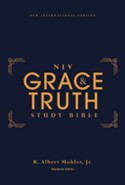
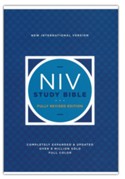

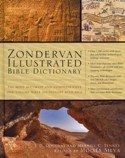

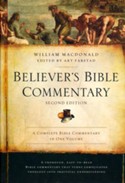

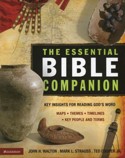

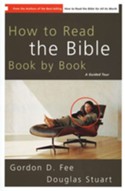




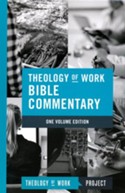

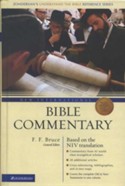



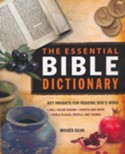


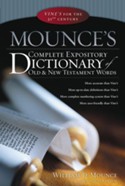
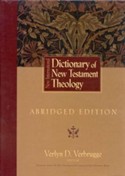
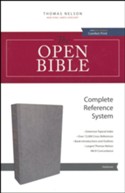



BIBLE GATEWAY RECOMMENDS


PAGE OPTIONS
FOOTNOTE
Does the past exist
. Introduction: The question of whether the past exists is a profound inquiry that intertwines philosophical discourse with scientific unde...
-
Bababadalgharaghtakamminarronnkonnbronntonnerronntuonnthunnt-rovarrhounawnskawntoohoohoordenenthurnuk Interjection (nonce) A sound which ...
-
A commandment Vasyl Sagaydak 1990 Never let a barbarian on your doorstep, my son – No matter if he comes with war or with sweet vows. He w...







